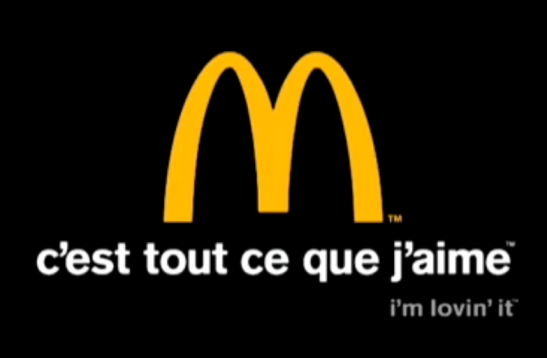REAL talk: Why is cultural translation such a challenge?
Medical Pharmaceutical Translations • Mar 24, 2014 12:00:00 AM

Here are two facts you may not know about the French: 1. Most French people like McDonald’s. 2. Most French people hate bad grammar. Which is why an exact translation of the slogan “I’m lovin’ it” isn’t used in ad campaigns for McDonald’s in France. Instead, it’s the much more mainstream C’est tout ce que j’aime. (“It’s everything I like.”)
Translation isn’t just about knowing how to transcribe words from one language to another: in order to truly get an effective message across, you also have to take culture into account.
Unfortunately, many translators seem to forget this vital rule. Recently, for example, keepin’ it REAL, an anti-substance abuse campaign that’s had some success in the Arizona school system was adapted for teens in selected Mexican schools, to very different results. While some classes revealed that the course, dubbed Manténte REAL in Spanish, showed no significant effects, students in non-participating schools reported an increase in substance abuse. While this may be a sign that the program did something, it obviously wasn’t a glowing success. The problem, this article suggests, is that being a teenager in Mexico is very different from being a teenager in the States. For one thing, not only is the legal drinking age lower in Mexico (18, compared to 21 in the United States); smoking and under-aged drinking are generally viewed with more indulgence there.
Another issue with the Mexican version of the program is that the educational videos it used were dubbed into Spanish by American-born actors, which students reported finding distracting. This really surprised me, especially because it’s not as if Mexico is far from the States or that there’s a lack of native speakers of Mexican Spanish in either place.
Sometimes cultural gaffes like these are difficult to avoid. Other times, they almost seem like laziness, or at least ignorance. Why wasn’t a project like this, where both cultures and geographic locations are fairly easily accessible, done successfully? I really can’t understand where things went wrong.
For example, why wouldn’t the project’s translators have gotten in touch with teachers and students at the Mexican schools, or even gone there to observe a little bit about student life and life outside of school as well? What about reading up on Mexican culture? You could do that via scholarly tomes, but in this case, it would be even easier to cruise around the internet for a while, checking out teen forums and pop culture websites and such. Or what about watching TV shows that are popular with young people in Mexico?
I did some research, and while I found many academic papers about the importance and challenge of cultural translation, nothing seemed to come clearly to the foreground as an answer for why it seems so hard. There are some cases where the challenge makes sense, like when one culture is extremely different from another, or downright inaccessible, or when a translator has limited time, no travel budget, or other factors that prevent him or her from truly analyzing and understanding a society’s mentality. But when that’s not the case, I have to admit I don’t get it.
All translators should realize that our job goes beyond the merely verbal. Luckily, examples like the French McDonald’s slogan show that some of us do. But it’s a shame that programs like keepin’ it REAL, which could really improve people’s lives, don’t seem to get the same approach.
One thing that the translators and other people working on this project can – and hopefully will – do now is examine why the program failed in Mexico. By looking at what went wrong, they may be able to revamp Manténte REAL so that it actually will speak to Mexican teens – not just linguistically but also culturally.
#aiatranslations #crosscultural #culturaltranslation #translation
